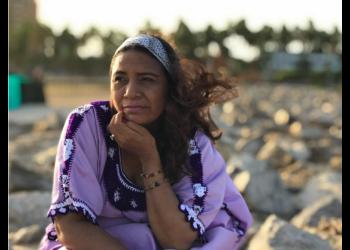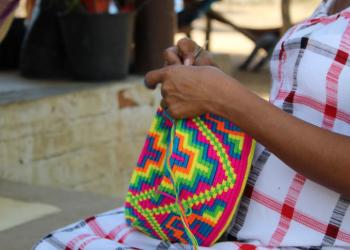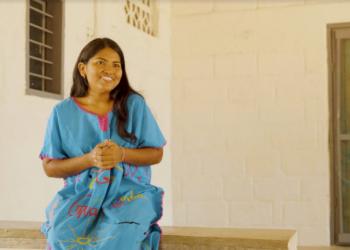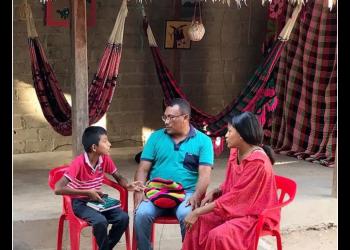Glimpses into the Spirit of Gender Equality: Riohacha, Colombia
The following is part of a series exploring how Baha’i communities have seen the principles of gender equality outlined in the Beijing Declaration and Platform for Action begin to take form in neighborhoods and villages around the world.
The Guajira Peninsula, in the north of Colombia and Venezuela, is an arid land where patterns of life are intimately tied to the search for water. Its indigenous people, the Wayuu, are talented artisans whose distinctive handcrafted bags depict their values and ways of life.
Wayuu women learn to weave at an early age and the industry is central to the local economy. But in recent years, horizons have been expanding for girls as growing numbers—including men in the community—have begun giving thoughtful attention to the values that should shape relations between the sexes.
“In Wayuu culture, men and women have very clear and defined roles, and these are followed closely,” says Lisan, a teacher living in the coastal town of Riohacha, and father to a son and daughter.
“But in our family, that is not so. In our family, we rely on consultation to make decisions. Each member of the family must be absolutely free to share his or her opinion during consultation before a decision is taken.”
At the heart of changes like these is a decentralized process of spiritual education aimed at building capacity for positive social transformation.
Facilitated both by members of the Baha’i Faith and growing numbers of like-minded collaborators, this system helps participants of all ages and backgrounds explore the practical application of spiritual teachings, such as the equality of women and men and the nobility of every human soul, to daily life and to the challenges facing society.
Crucially, the approach seeks to integrate study and the acquisition of knowledge with action and concrete service to others.
“Education empowers young people, and service teaches them to put others first,” explains Yalcira, a high school student who helps coordinate classes for young adolescents.
She notes the particular impact that the process can have on views of the capacities of women. “In a gender equal world, equality would be evident in every arena of life, from the family sphere to the professional one. Men and women would take on human affairs side by side.”
This consciousness is finding expression in the growing readiness of men in the community to take on tasks long seen as the domain of women alone. Fathers taking strides in this direction are giving more active support to the academic advancement of their girl children.
Concern for all members of the community is similarly being brought to bear on the very tangible challenges posed by changing patterns of weather in the region. Growing water scarcity and the detrimental effects of clear-cutting wood are among the environmental issues being considered afresh by women and men alike.
“Climate change impacts the indigenous community in a very immediate way. Yet neglecting environmental concerns will eventually have consequences that reach every person on this planet,” observes Lensi, a Wayuu college student in her early 20s who is involved in the educational activities. “We can never just think of ourselves as individuals. We must always keep in mind the collective weal.”
Reflecting on the changes he has seen among both the women and men among his people, Lisan notes that commitment to the equality of women and men as a matter of spiritual truth has been key.
“This is why we have chosen to incorporate the elements of our culture that are beautiful and healthy, and to move away from the ones that contradict those spiritual teachings.”







